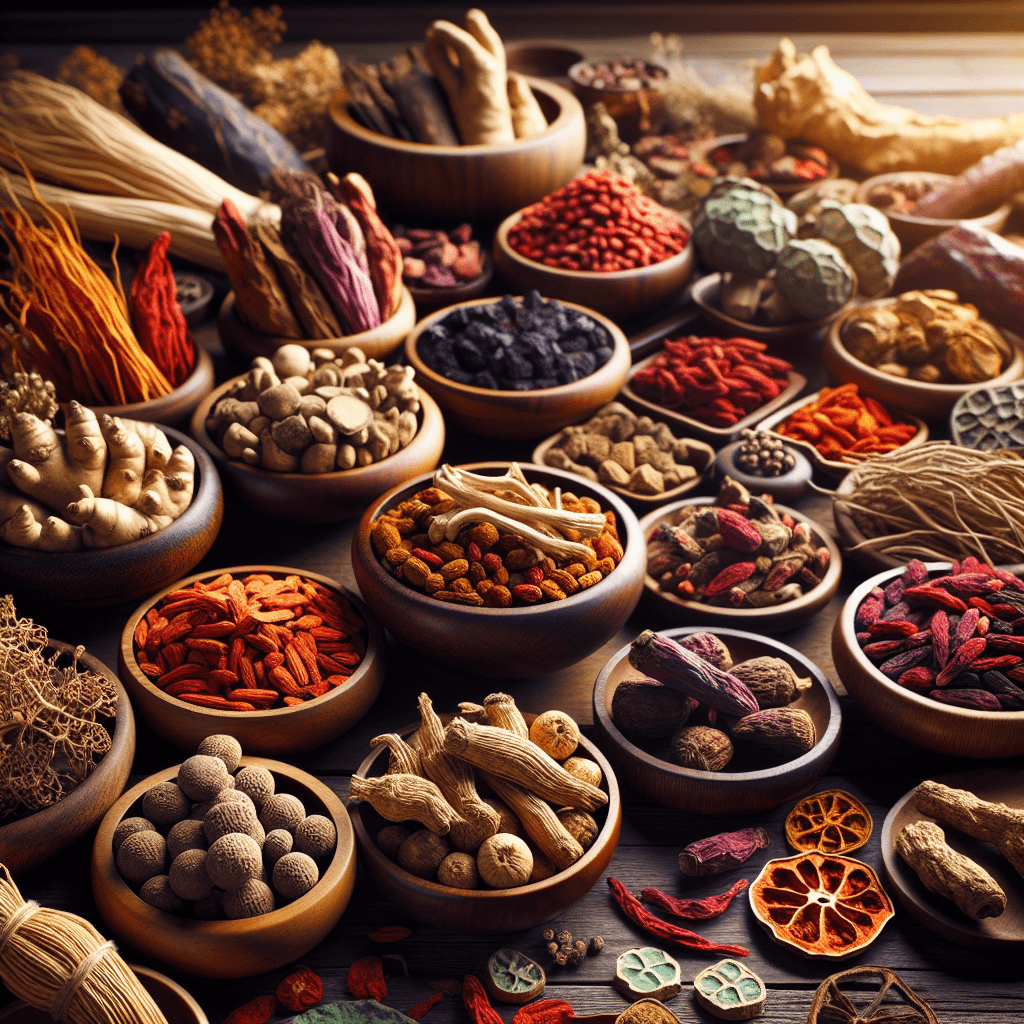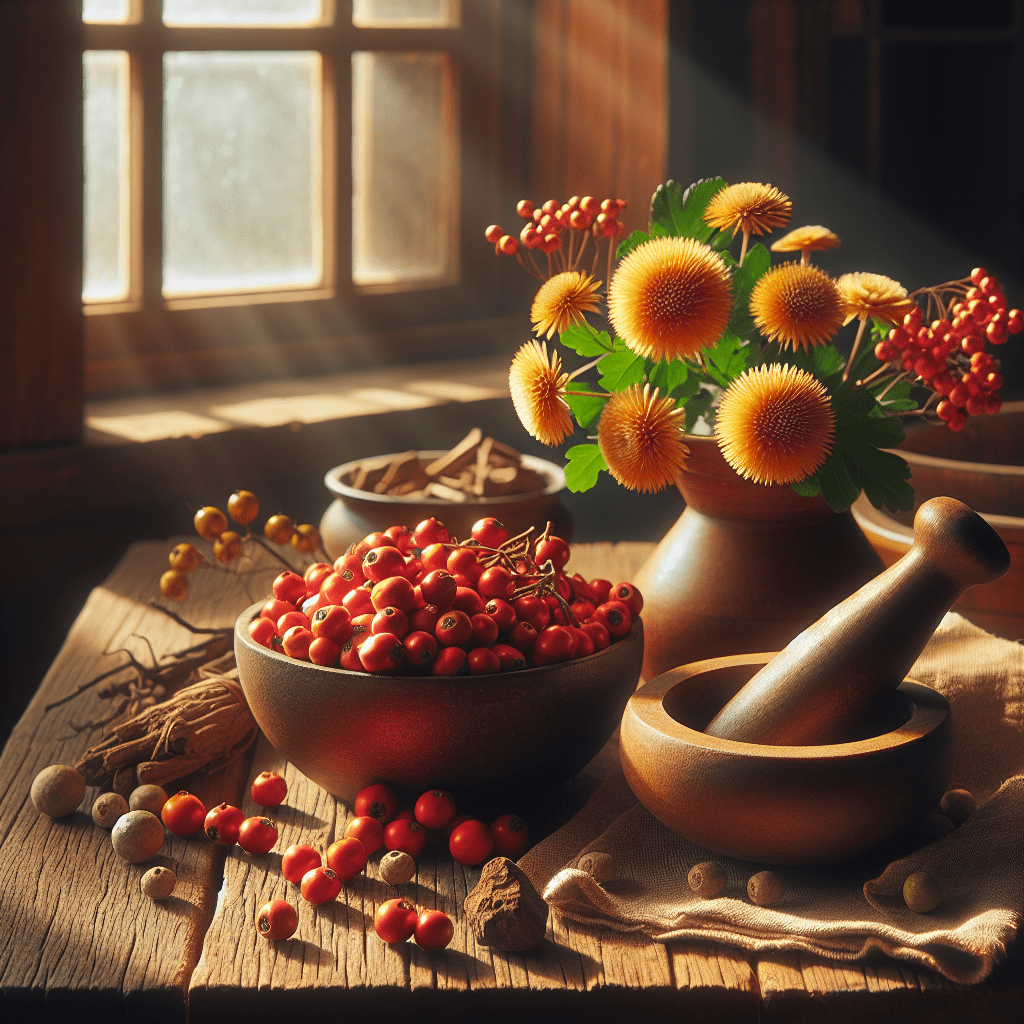For thousands of years, Chinese herbal tea has been more than just a beverage—it’s been medicine in a cup, offering healing properties that modern wellness seekers are rediscovering with newfound appreciation. These special brews, deeply rooted in Traditional Chinese Medicine (TCM), represent one of the oldest and most sophisticated plant-based healing systems in the world. Unlike your everyday cup of breakfast tea, Chinese herbal teas are carefully crafted combinations of roots, leaves, flowers, and barks, each selected for their unique healing properties and their ability to work in harmony together.
What makes these ancient remedies so appealing today? As more people search for natural, gentle approaches to wellness that treat the whole person rather than just symptoms, Chinese herbal tea stands out as a time-tested solution that aligns perfectly with contemporary holistic health values. These teas don’t just offer a momentary sense of comfort—they’re designed to restore balance to your entire system, supporting your body’s natural healing abilities the way nature intended.
The Remarkable Health Benefits of Chinese Herbal Tea
Chinese herbal tea isn’t just delicious—it’s packed with powerful health benefits that have stood the test of time. These aren’t just folk tales passed down through generations; modern research is increasingly backing up what TCM practitioners have known for centuries.
At the heart of Chinese herbal tea’s effectiveness is its rich antioxidant content. These protective compounds help shield your cells from damage, potentially preventing serious health conditions and slowing the aging process. When you sip a cup of Chinese herbal tea, you’re essentially giving your body a defense boost against the environmental stressors we face daily.
Perhaps one of the most valued benefits in TCM is how these teas support and replenish your Qi—your vital life energy. In Eastern medicine, proper Qi flow is essential for optimal health. Many people today experience what TCM would identify as Qi deficiency—feeling constantly tired, catching every cold that goes around, or having trouble bouncing back from illness. Regular consumption of specific Chinese herbal teas can help strengthen this vital energy, leaving you feeling more resilient and energetic.
“Chinese herbal teas work differently than Western medicine,” explains Dr. Li Wei, a TCM practitioner with over 30 years of experience. “Rather than targeting a specific symptom, they work to restore harmony and balance to the entire system, which naturally resolves health issues and prevents new ones from developing.”
The immune-supporting properties of Chinese herbal tea are particularly noteworthy. Herbs like honeysuckle and self-heal spike have been used for centuries to boost immunity and help the body stay balanced. In today’s world of constant immune challenges, these traditional remedies offer gentle, sustainable support without the harsh side effects of some modern solutions.
Beyond immune support, Chinese herbal teas offer remarkable benefits for digestion, stress management, and emotional balance. Formulas like Xiao Yao San help ease stress and promote emotional equilibrium, while others containing herbs like Atractylodes and ginger work to dispel dampness and regulate digestion—common issues in our modern, processed-food world.
What makes Chinese herbal tea particularly valuable as a complementary therapy is its gentle, harmonizing approach. These teas don’t force the body in one direction or another—they help restore natural balance, making them ideal for daily use alongside other wellness practices.
The Art of Preparing Chinese Herbal Tea for Maximum Benefits
Preparing Chinese herbal tea is both an art and a science. The process matters almost as much as the ingredients themselves, with proper preparation being key to unlocking the full spectrum of healing compounds within the herbs.

The first step is selecting high-quality herbs. Unlike commercial tea bags, authentic Chinese herbal teas often start with whole, dried herbs that you can see and touch. The best quality herbs will have vibrant colors, strong aromas, and clear origins. Many health food stores now carry basic Chinese herbs, while specialty Asian markets often have the widest selection. Online retailers specializing in TCM supplies are another excellent resource for those without local access.
When preparing Chinese herbal tea, the traditional method differs significantly from brewing your morning cup of black tea. Most Chinese herbal formulas require a longer simmering process to extract the medicinal compounds properly. This decoction method typically involves:
2. Adding the clean herbs to a non-metallic pot (ceramic or glass is ideal)
3. Covering with cold, filtered water
4. Bringing the mixture to a full boil, then reducing to a simmer
5. Allowing the herbs to simmer, covered, for 20-30 minutes (some formulas may require up to an hour)
6. Straining and drinking the resulting tea
“The temperature and brewing time are crucial,” notes Chinese herbal tea expert Zhang Min. “Too hot or too long, and you may destroy delicate compounds. Too cool or too brief, and you won’t extract the full medicinal benefits.”
While this traditional method yields the most potent results, modern adaptations exist for busy lifestyles. Some herbs can be prepared as infusions (steeping in hot water) rather than decoctions, and pre-packaged granules or tea bags offer convenience while still providing benefits.
For those new to Chinese herbal tea, it’s wise to consult with a qualified TCM practitioner before beginning any regular regimen. These experts can recommend specific formulas tailored to your unique constitution and health needs. What works wonderfully for one person might be less effective or even counterproductive for another—personalization is a cornerstone of TCM’s effectiveness.
Popular Chinese Herbal Tea Formulas and Their Unique Benefits
The world of Chinese herbal tea offers a vast array of formulas, each with specific healing properties and cultural significance. These aren’t just random combinations—they’re time-tested formulations carefully balanced to address particular health concerns while maintaining overall harmony in the body.
Ginseng tea stands among the most revered Chinese herbal teas worldwide. Known as the “king of herbs” in TCM, ginseng is prized for its remarkable ability to boost energy and vitality without the jittery side effects of caffeine. It’s particularly beneficial for those recovering from illness or experiencing chronic fatigue. A properly prepared ginseng tea has a distinctive earthy sweetness and leaves you feeling genuinely energized rather than artificially stimulated.
Goji berry tea offers another popular option, celebrated for its antioxidant richness and mild, pleasant flavor. These small red berries have been used in Chinese medicine for thousands of years to support eye health, strengthen immunity, and enhance longevity. Modern research confirms they’re packed with nutrients including vitamin C, zeaxanthin, and complex polysaccharides that support cellular health. To prepare goji berry tea, simply steep a handful of dried berries in hot water, or combine them with other herbs like chrysanthemum for enhanced benefits.
Speaking of chrysanthemum, this flower makes one of the most beloved Chinese herbal teas, particularly valued for its cooling properties. Chrysanthemum tea helps clear heat from the body—a concept in TCM that roughly translates to reducing inflammation and calming overactivity in modern terms. It’s especially helpful for those with eye strain from computer use, mild headaches, or seasonal allergies. The sunny yellow flowers produce a delicately sweet tea that can be enjoyed daily.
For those dealing with stress and emotional tension, formulas containing herbs like licorice root provide natural support. Licorice not only adds sweetness to herbal blends but also helps “harmonize” the other ingredients, making the formula work more effectively as a whole. It’s often included in formulas designed to soothe digestive issues while calming the mind—a perfect example of how Chinese herbal tea addresses both physical and emotional aspects simultaneously.
Liu Wei Di Huang Wan, a classical formula that can be prepared as a tea, deserves special mention for its kidney-strengthening and vitality-boosting properties. This sophisticated blend of six herbs works to nourish what TCM calls “kidney essence”—the foundational energy that supports everything from bone health to reproductive function to longevity itself.
To enhance the flavor of Chinese herbal teas naturally, many practitioners recommend adding a small piece of dried jujube date or a bit of honey. These not only improve taste but also contribute their own healing properties to the brew.
Embracing Chinese Herbal Tea in Modern Life: Where Tradition Meets Wellness
In our fast-paced world of quick fixes and instant solutions, Chinese herbal tea offers something different—a moment of mindful connection with an ancient healing tradition that has withstood the test of time. The beauty of these herbal brews lies not just in their health benefits but in their accessibility; they offer an approachable entry point into the wisdom of Eastern medicine without requiring dramatic lifestyle changes.
Integrating Chinese herbal tea into your daily routine can be as simple as replacing your afternoon coffee with a cup of chrysanthemum tea, or starting your morning with a gentle goji berry blend instead of highly caffeinated options. These small shifts can create profound changes over time—exactly the kind of gradual, sustainable transformation that TCM has always valued.
What makes Chinese herbal tea particularly relevant today is how perfectly it aligns with contemporary wellness values. In an era where more people are seeking natural remedies, personalized health solutions, and preventative approaches rather than just treating symptoms, these ancient brews feel remarkably modern in their philosophy.
“The Eastern approach to wellness has always been about preventing imbalance before it manifests as disease,” explains Dr. Jessica Chen, who bridges Eastern and Western medical practices in her work. “Chinese herbal teas embody this preventative mindset perfectly—they’re gentle enough for daily use but powerful enough to make a real difference in how you feel.”
This philosophy of balance, prevention, and personalization is precisely what we embrace at HerbalsZen. Our EASTCHI AI system represents the natural evolution of these ancient healing traditions, using cutting-edge technology to make the wisdom of Eastern medicine more accessible and personalized than ever before. Just as a skilled TCM practitioner would recommend specific herbal tea formulas based on your unique constitution, EASTCHI AI analyzes your constitutional type through Five Element Theory to provide customized recommendations that honor traditional knowledge while fitting seamlessly into modern life.
Chinese herbal tea reminds us that some of the most profound healing approaches aren’t new innovations but ancient wisdom rediscovered. These teas offer more than just physical benefits—they provide a tangible connection to a 2,000-year-old healing tradition that understood the importance of treating the whole person, not just isolated symptoms.
As you explore the world of Chinese herbal tea, remember that you’re not just adopting a new beverage—you’re participating in a living tradition of healing that has supported countless generations before us. Whether you’re sipping chrysanthemum tea to soothe tired eyes after a day of screen time, or brewing a strengthening ginseng blend to restore your energy, each cup represents a perfect blend of ancient wisdom and modern wellness—a philosophy we can all raise our teacups to.
“Tea is the elixir of life.” – Ancient Chinese Proverb


